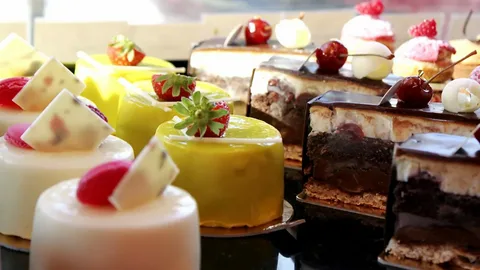The cakes and pastries market has long been a significant player in the global food industry, with its array of delicious and indulgent products satisfying consumers' cravings for sweet treats. However, in recent years, there has been a noticeable shift in consumer behavior, driven by a surge in home baking. The rise of DIY bakery kits and the growing trend of home baking have revolutionized how people interact with cakes and pastries, creating new opportunities and challenges for businesses in the sector.
The Rise of Home Baking
Home baking has experienced a significant resurgence, driven by a combination of factors such as increased time at home, a desire for creative expression, and a growing interest in healthier and more personalized food options. Over the past few years, especially with the disruptions caused by global events, many consumers turned to baking as a comforting and productive activity during lockdowns and social distancing measures. What started as a practical solution to limited access to baked goods quickly evolved into a popular hobby and lifestyle choice.
Consumers have become more invested in the art of baking cakes, cookies, and pastries from scratch, and this shift is not just about necessity it’s about the joy of creating something from basic ingredients and the satisfaction of enjoying homemade treats. This trend has not only attracted novice bakers but also rekindled the passion of experienced home bakers who relish the creative control and personalization that home baking offers. The desire to replicate professional quality cakes and pastries at home has spurred the growth of DIY bakery kits, providing consumers with the tools, ingredients, and instructions they need to create bakery style goods from the comfort of their own kitchens.
The Growth of DIY Bakery Kits
DIY bakery kits have emerged as a key product category within the cakes and pastries market, catering to the growing interest in home baking. These kits offer a convenient and accessible way for people to recreate the experience of baking without requiring advanced skills or specialized ingredients. Typically, a DIY bakery kit includes pre measured ingredients, step by step instructions, and any necessary tools, such as baking molds or decorating tools. Some kits even come with ready-to-use fondant, icing, or frosting, making it easy for consumers to produce professional-looking cakes and pastries without a bakery’s level of expertise.
The appeal of DIY bakery kits lies in their simplicity, convenience, and the sense of accomplishment they offer. For many home bakers, the kits provide a way to experiment with new flavors and baking techniques without the stress of having to source hard to find ingredients. Whether it's a classic chocolate cake, a batch of delicate macarons, or a pastry like a croissant, DIY bakery kits make it possible for people of all skill levels to bake with confidence.
The increasing popularity of these kits is also fueled by their potential for customization. Many brands now offer kits that allow bakers to modify their creations, such as adding different fillings, toppings, or decorations, enabling consumers to create cakes and pastries that reflect their personal taste and style. This customization factor taps into the growing trend of personalization in food, as consumers are more interested in making products that reflect their individual preferences and dietary needs.
Market Demand for Convenience and Quality
The demand for DIY bakery kits is part of a larger trend within the cakes and pastries market, where convenience and quality are key drivers of consumer choices. With busy lifestyles and increasing reliance on technology, consumers are constantly seeking ways to streamline their routines without compromising on the quality of the products they consume. DIY bakery kits provide the perfect solution by offering an easy to follow, enjoyable, and high-quality baking experience that allows consumers to create artisanal-style cakes and pastries without the time investment or difficulty of traditional baking.
Consumers are also more conscious of the ingredients they use, and DIY kits cater to this growing preference for quality. Many kits now feature organic, non-GMO, and sustainably sourced ingredients, allowing home bakers to align their baking activities with their values. As interest in healthier eating continues to rise, some kits even cater to specific dietary preferences, such as gluten-free, dairy-free, or vegan options, ensuring that everyone can participate in the home baking trend.
Social Media and the Influence of Food Trends
Social media has played a pivotal role in the growth of home baking and DIY bakery kits, with platforms like Instagram, YouTube, and Pinterest serving as inspiration for millions of home bakers. The visual appeal of beautifully decorated cakes and pastries often shared with detailed recipes or step-by-step guides has created a social media-driven baking culture. This has encouraged more people to try their hand at baking at home, with many sharing their creations online and contributing to the viral nature of baking trends.
The “Instagrammable” nature of home-baked goods has also led to a rise in demand for DIY kits that allow bakers to replicate viral trends, such as drip cakes, macarons, or intricate sugar art. As social media influencers and food bloggers showcase their own baking endeavors, they create a ripple effect, inspiring followers to purchase DIY kits, participate in baking challenges, and share their results. The connection between food culture and social media has made baking at home feel like both a creative expression and a social activity.
The Future of DIY Bakery Kits and Home Baking
Looking ahead, the growth of DIY bakery kits and home baking trends seems poised to continue shaping the cakes and pastries market. The desire for convenience, quality, and creative freedom will likely lead to further innovation in this space, with new products, flavor options, and educational resources being developed to meet the evolving needs of home bakers.



